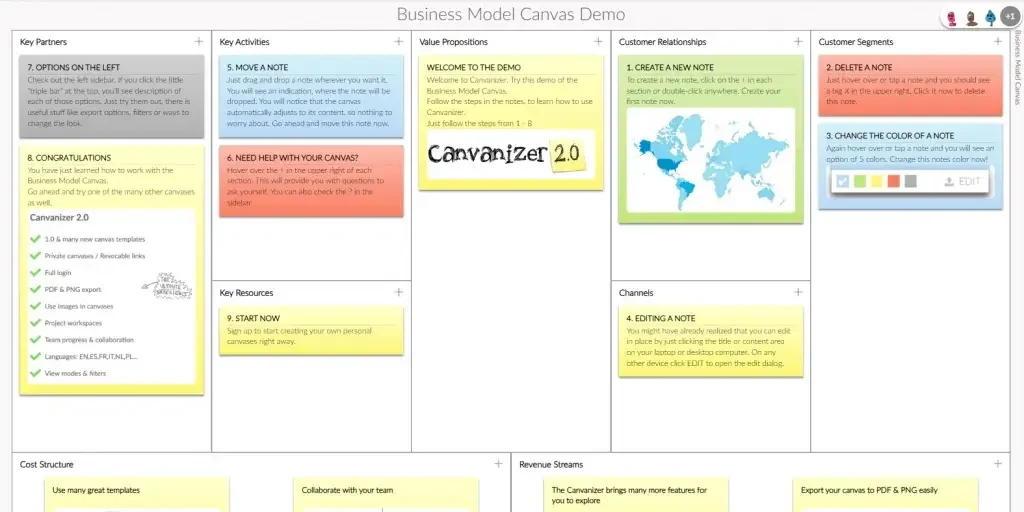
In the dynamic world of entrepreneurship, having a well-equipped business toolkit is crucial for success. This toolkit comprises a combination of strategies, resources, and tools that streamline operations, enhance productivity, and drive growth. Whether you’re launching a startup or scaling an existing business, assembling the right components tailored to your needs can make a significant difference.
A solid business plan serves as the foundation of your enterprise. It outlines your goals, target market, competitive analysis, and financial projections. Utilizing frameworks like the Business Model Canvas can help in visualizing and structuring your business model effectively. This strategic management template allows you to describe, design, challenge, and pivot your business model, ensuring clarity and focus.
Effective financial management is vital for sustaining and growing your business. Tools such as QuickBooks or Xero assist in tracking expenses, managing invoices, and monitoring cash flow. Additionally, understanding financial statements like income statements and balance sheets provides insight into your company’s financial health, enabling informed decision-making.
The Business Model Canvas is a strategic management and lean startup template used for developing new business models or documenting existing ones. It takes the form of a visual chart that outlines key elements, including a company’s or product’s value proposition, infrastructure, customers, and finances. This tool helps organizations align their activities by illustrating potential trade-offs. Check out these resources:

Reaching your target audience requires a robust marketing strategy. Digital marketing tools like HubSpot or Mailchimp can help manage campaigns, automate emails, and analyze customer engagement. Leveraging social media platforms and content creation tools enhances your online presence, attracting and retaining customers.
Streamlining operations ensures efficiency and productivity. Project management tools like Trello or Asana facilitate task assignment, progress tracking, and team collaboration. Implementing standard operating procedures (SOPs) and utilizing workflow automation can further optimize daily operations.
Navigating legal requirements is essential to avoid potential pitfalls. Resources like the U.S. Small Business Administration’s Business Smart Toolkit offer guidance on licenses, permits, and regulations. Consulting with legal professionals and utilizing contract management software can help in maintaining compliance and protecting your business interests.
Building a competent and motivated team is a cornerstone of business success. Human resource management systems (HRMS) like BambooHR assist in employee onboarding, performance tracking, and benefits administration. Fostering a positive company culture and providing professional development opportunities contribute to employee satisfaction and retention.
Staying abreast of technological advancements can provide a competitive edge. Incorporating tools that enhance productivity, such as cloud computing services and customer relationship management (CRM) systems, can streamline processes. Additionally, embracing methodologies like Lean Startup encourages continuous innovation and adaptation to market changes.
Building a network of mentors and peers offers support, guidance, and opportunities. Engaging with organizations like the Oregon Entrepreneurs Network provides access to resources, events, and a community of like-minded individuals. Participating in industry conferences and local business groups can also facilitate valuable connections.
Entrepreneurship can be demanding, making personal well-being a priority. Time management tools, mindfulness practices, and setting boundaries help maintain a healthy work-life balance. Continuous learning through workshops, courses, and reading keeps you informed and inspired.
Understanding your customers’ needs and experiences is crucial for improvement. Utilizing customer feedback tools and conducting regular surveys can provide insights into areas of enhancement. Building strong customer relationships through excellent service and engagement fosters loyalty and positive word-of-mouth.
In conclusion, assembling an effective business toolkit involves selecting the right tools and strategies that align with your specific needs and goals. By focusing on these key areas, entrepreneurs can build a solid foundation for their businesses, navigate challenges effectively, and position themselves for sustained success.



One Response